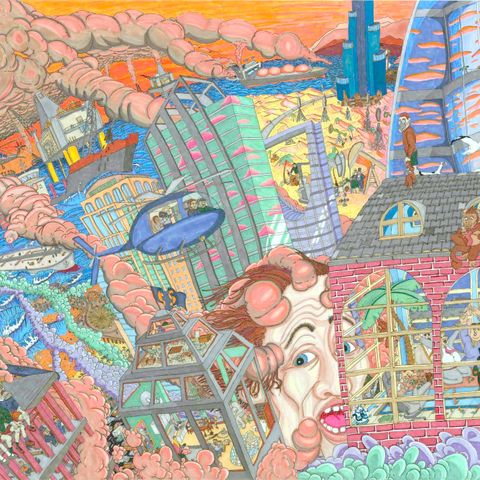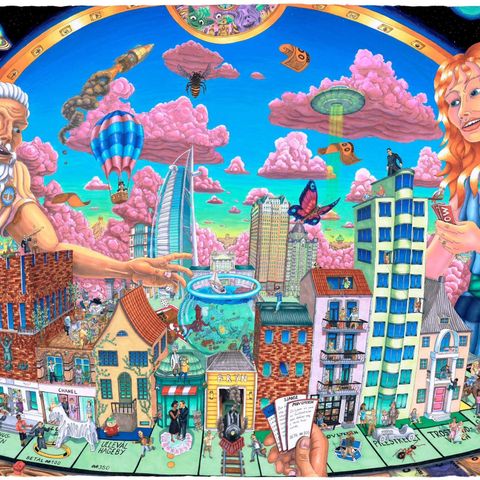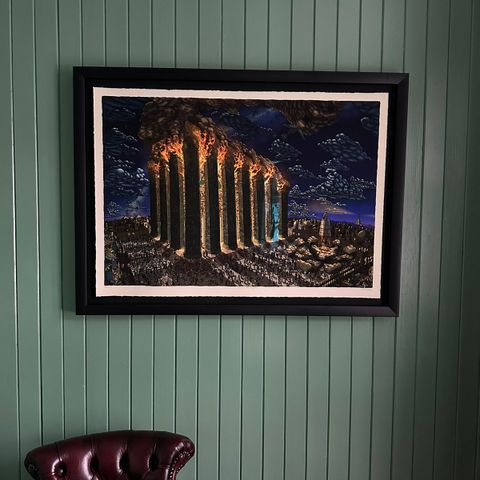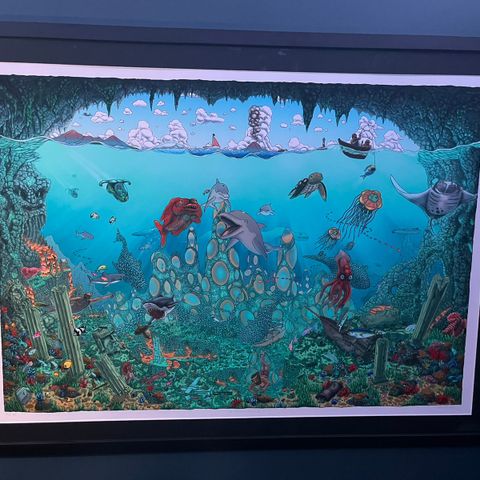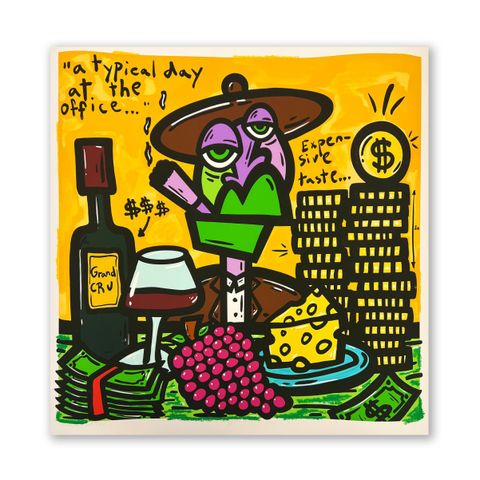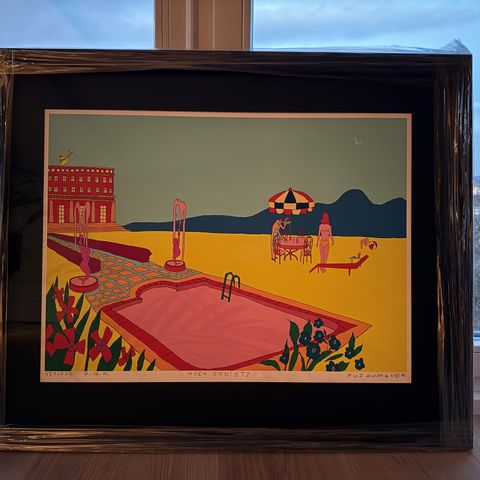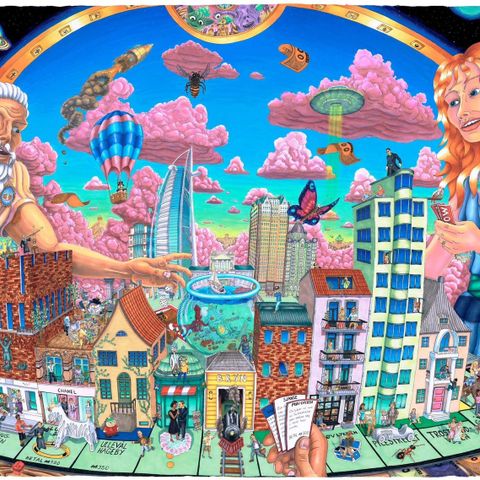Bildegalleri
Guttestreker Peoples Pandemic
Beskrivelse av varen
Stort og flott verk av Guttestreker – The Peoples Pandemic!
Nå har du muligheten å sikre deg et unikt bilde av en pandemi av Guttestreker.
Dette er ett verk utenom det vanlige, der hele verden fikk kjent på pandemien. Historien vil følge oss resten av livet og bildet brukes også til undervisning på skoler.
Med verket Peoples Pandemic favner de en lang historie med epidemier og pandemier som har satt sitt preg på verden. I dette verket har koronaviruset tatt skikkelsen som det grønne monsteret, udyret vi var redde for som barn. Nå er det høyst levende, ikke som et eventyr, men som en realitet rundt oss på alle kanter. Verket, som illustrerer vår frykt for det som skjer i verden rundt oss, bærer også håpet. Når den menneskelige aktivitet roer seg som et resultat av karantener, får naturen et større spillerom: Delfiner dukker opp i kanalene i Venezia, vegetasjon og dyr tar tilbake områder som lenge har vært forbeholdt mennesker. Fargene, detaljene, fortellingene og de historiske referansene gjør dette verket til et overflødighetshorn av et bilde som man kan nyte lenge etter at pandemien er en saga blott.
Produksjonsår: 2020
Teknikk: D.G.A
Opplag: 15
Format: 150 x 105
Signert: Ja
Sertifikat: Ja
Guttestreker er kunstnerduoen som lager filosofiske bilder med metaforer vanlige folk kan forstå. Petter Malterud Grøndahl (f. 1989) og Christoffer Kroge Christensen (f. 1990) har lenge hatt menneskets manglende eve til å verdsette jorden som kjernen i sitt budskap.
Beskrivelse (text by Guttestreker):
It all started during the Cholera Epidemic in London in 1854. It was a young doctor named John Snow who had a theory that there were some microscopic organisms that had infected the water in various water pumps around the city and by isolating these, they managed to stop the outbreak. Before this, science believed that it was gases, so-called miasms, that rose from the earth and made us sick. The incident has a strong link to today when we now isolate the disease carriers to win the battle against the virus.
There are now reports from all over the world that emissions are declining and that nature is beginning to flourish again in several places. This clearly shows that when human activity goes down, the activity of nature goes up and thus we conclude that it is the humans who are the earth’s virus.
The virus we are now fighting against is unbelievably small, at the same time as it dominates us and our entire society, in the same way, that we humans are so insanely small, but completely dominate the earth. We have been doing this for quite some time and the start of globalism, which is the decisive factor in the spread of infection, also has a strong link to today.
When the conquistadors arrived in America at the beginning of the 16th century, up to 90% of the natives died from the bacteria and viruses they carried with them. Today, there are still several isolated native societies, especially in South America, that are particularly vulnerable to Covid-19, as they have not been as exposed to similar diseases in the past.
Another organism, which like humans and the virus has spread throughout the world, is ants. Ants are special because they have passed something called a mirror test, where you put a mirror in front of an animal and see if it can recognize itself. There are a handful of animals that have passed the test, including dolphins and elephants. Three species of ants have passed this test, which indicates that they are self-conscious while operating as a large organism. And that is exactly what we humans are trying to do now to kill this other organism, namely the virus.
When there is a flood in the Amazon jungle in South America, there is an ant species that gathers and builds a fleet of individuals, and then floats away to drier lands and security. They do this in the knowledge that the lower ones must sacrifice and drown. In the same way, we humans now have to sacrifice ourselves, by not going on holidays, festivals, etc. In the Viking-age, on the other hand, it was the old people who went and sacrificed themselves when they could no longer contribute and were a burden to society. They went up on a hill and performed what is called “Ættestup” by throwing themselves off the edge in certain death. Today, it would be highly socio-economically beneficial to get rid of a bunch of expensive old people. On the other hand, Gandhi says: “You can judge a society by how they treat their weakest.“
We are now standing at a crossroads where we must decide what is most important to us as human beings and society in the future. Should we take care of everyone’s health, the economy, or is it nature that is most important to us. And is it that which is best for us humans, that which is best for the earth?
Du må være logget inn for å se brukerprofiler og sende meldinger.
Logg innAnnonsens metadata
Sist endret: 18.1.2025, 22:48 ・ FINN-kode: 379583244
Mer som dette
175 000 kr





